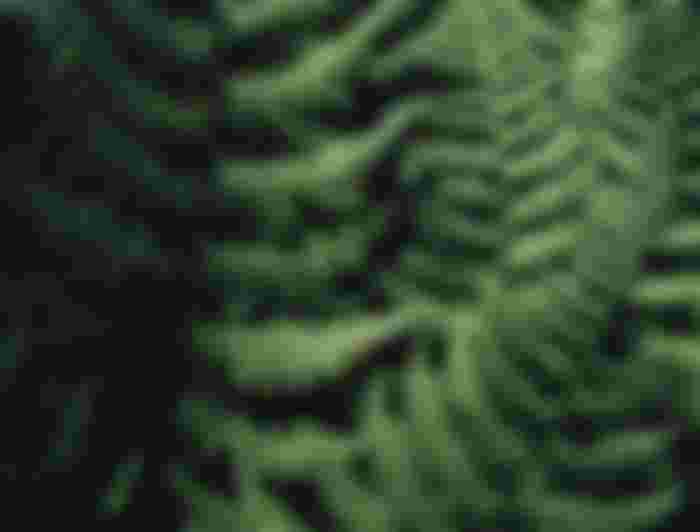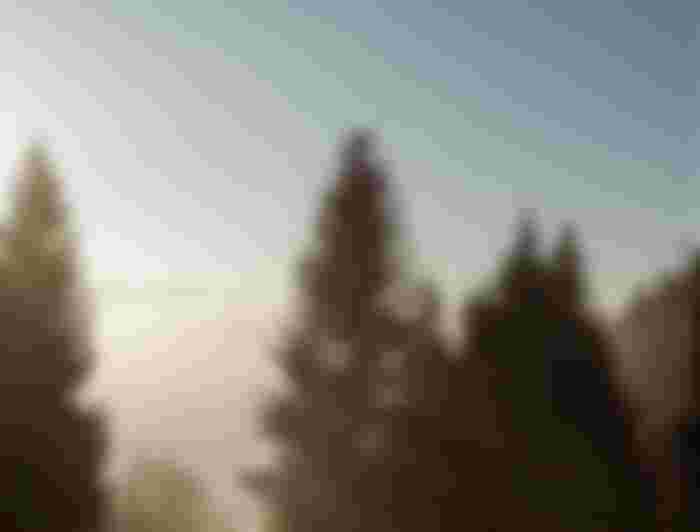Filippo sapeva benissimo che cosa era: un cacciatore di belve a due zampe. Mano ferma e nervi saldi, tiratore scelto o semplicemente cecchino. Nelle file dell’esercito il gruppo di tiratori scelti si era rapidamente ingrossato, tanto da venir inquadrato in un reparto speciale; l’idea del Generale sembrava funzionare: dopo un anno di rodaggio quel suo nuovo giocattolo di morte uccise migliaia di nemici. Le gesta dei Cacciatori, così venivano chiamati, erano riportate dai giornali e su di loro erano stati stampati anche volantini propagandistici che ne esaltavano le eroiche imprese. Qualcuno di questi volantini cadde nelle mani del nemico e così anche loro, in breve, misero in campo i loro di cecchini. Era nata una guerra nella guerra. Spietati killer assetati di sangue si addentravano nelle retrovie nemiche con l’obbiettivo di uccidere e terrorizzare la popolazione civile. I Cacciatori avevano delle rigide procedure tattiche da seguire, ogni tiratore mandato in missione o in ricognizione esponeva il risultato delle sue osservazioni effettuate durante la giornata e formulava le sue supposizioni e presentava le sue proposte al cospetto del Generale, ma il più delle volte ritornare alla base per loro era impossibile e così restavano bloccati in territorio nemico e allora gli ordini erano sempre quelli: prima gli ufficiali, poi i sottufficiali alla fine soldati e civili, sparare, uccidere, creare panico e nascondersi in attesa di un’ opportunità per il rientro. Filippo era uno dei migliori del reparto, il primo del corso, e da poco era stato promosso caporale. Si accorse da subito, dai primi mesi di battaglia, che l'arte del cecchino era qualcosa di personale e che nonostante l'esperienza e le nozioni acquisite era l'iniziativa del singolo, che isolato in territorio ostile, faceva la differenza tra il vivere o il morire. Faccia a faccia con il nemico il tiratore doveva creare, inventare, agire di volta in volta in un modo nuovo cambiando spesso posizione e nascondendosi con cautela nella lunga attesa della preda.

All’uscita dal bosco le bianche cime innevate apparvero davanti a lui avvolte da un sottile velo di nebbia e vapore. Nelle retrovie, nei pressi di una radura ai bordi della pineta, pioveva da giorni, continuamente, pareva ormai da sempre. I fili lunghi e brillanti della pioggia montana scorrevano con un mormorio sordo e dolce fra i rami degli alberi e la rossa terra bagnata fumava un alito gelido che si confondeva con il respiro dei cavalli che a occhi bassi affondavano gli zoccoli nel fango mentre venivano accompagnati a fatica da un paio di soldati verso il loro recinto. Alcuni militari stavano in piedi sulla soglia delle baracche disseminate nella radura degli abeti; uno si accorse di Filippo e con un cenno lo salutò, poi riprese a fumare un'umida e nera vecchia cicca di sigaro.
“Caporale, questa non è la tenuta regolamentare”, commentò un anziano sottotenente di complemento squadrandolo in volto.
“Mah è tenuta da guerra”, rispose Filippo salutando militarmente e presentandosi.
Le gocce dell'acqua luccicavano scivolando nei suoi baffi cadenti e sulla sua lunga barba bionda, mentre i suoi limpidi occhi blu spuntavano appena da sotto l’elmetto.
“Abbiamo il secondo Cacciatore che il comando stava aspettando. Ottimo! La sua attrezzatura è tutta lì?”, Domandò l’ufficiale indicando dubbioso il fucile di precisione.
“Signor no… Lo zaino e il resto e su uno dei camion che sta salendo da valle. Ho preferito raggiungere l’accampamento a piedi. Questo è il campo base?”Domandò Filippo cercando di restare sull’attenti mentre con gli stivali sprofondava nel fango.
“Va bene giovanotto ascolta, sei quasi arrivato, un chilometro e forse meno e sei al campo base. Passa in fureria e fatti assegnare una baracca. Datti una sistemata e togliti quella cerata fradicia e bevi qualcosa di caldo”, l’ufficiale lo congedò con un sorriso e una pacca sulle spalle.
Prima di riprendere il cammino Filippo si fermò al lato della carreggiata a osservare “gli elefanti della montagna”, i fuoristrada cingolati che passarono saettando fango e slittando da tutte le parti. Terminati i carri leggeri d’artiglieria iniziò una lunga colonna di camion: quelli su cui avrebbe dovuto viaggiare lui per raggiungere il campo base.
“Che strade, Signore Idio!”, scese imprecando un ometto in mimetica da una berlina grigia. Il soldato bestemmiando si asciugò il sudore che malgrado la pioggia, gli colava da sotto il berretto inzuppato d'acqua.
“Oggi non si cammina, boia d'un mondo! Caporale, dagli una spinta”, urlò in direzione di Filippo un sergente saltato giù da un camion.
Le ruote pattinarono, e la macchina non voleva ripartire bloccando così l’intera colonna.
“Accelera, dai gas… Ora vai!”Urlò il Sergente. Con un'esse completa l’auto ripartì.
“Dopo tutto bastava una spinta”, sorrise il Sergente scrollando le spalle sotto la pioggia.
“Sergente proseguiamo?”, domandò l’autista del primo camion.
“Oggi non si cammina, boia di una vita! Ora passeremo noi, ma i treni d'artiglieria… Venticinque, trenta, quaranta carri, faranno fatica”, commentò il Sergente rivolto a Filippo. Poi con la mano destra diede il via alla colonna.
“La strada sale, come salgono le strade di montagna. Venti, ventuno, ventidue per cento e il fango cresce”.
Passarono i camion, tremando, gemendo e pattinando sulle enormi ruote e giunto all’ultimo della fila il Sergente si rivolse a Filippo:
“Salta su, caporale. Ti portiamo noi al campo. Monta su che il camion, porta tutto. Oggi portiamo cemento a duemila metri, per far le trincee contro quei cani. Domani porteremo assi per le baracche nelle valli. Non badare se slittiamo come ubriachi: Mario è il miglior conduttore dell’esercito”.
Uno schizzo laterale e l’ ultimo camion della colonna si rimise in moto con Filippo a bordo.
“Questo è il mestiere. Noi camminiamo da tre mesi su e giù da questa montagna. Abbiamo fatto diecimila chilometri portando rifornimenti alle truppe... Ne faremo cinquantamila ancora. Si parte la mattina e si arriva la sera. La nostra vita ormai è alla caserma a valle, o tra le montagne”.
“Buca! Tieniti forte caporale, e non badare se ti va la polvere nel naso”, lo avvertì il commilitone seduto al suo fianco nel cassone.
“Polvere nel naso?” Domandò Filippo, ma non fece tempo a chiedere che polvere che una nuvola grigia lo avvolse, mentre il camion si affossava e sbandava di lato per poi rimettersi in carreggiata.
“Cemento. Lo portiamo a monte. Questo bestione ne è pieno”, sorrise il Sergente alzando il telo e sistemando i sacchi per poi tornare a sedersi cercando di scrollarsi di dosso la polvere appiccicata alla divisa bagnata. Filippo si sporse fuori e notò altri cavalli, questi però sellati e pronti che nitrirono al loro passaggio.
“I cavalli, caporale! Son bestie stupide. Non hanno paura del cannone, ma dell'automobile sì”, commentò il Commilitone.
Il camion frenò bruscamente.
“Scendi, caporale sei arrivato. Quando passi a valle vienimi a trovare! Tu! Non stare lì impalato. Scarichiamo!” Urlò il Sergente al Commilitone aprendo il cassone. I sacchi caddero sul selciato con un suono tonfo, tra un gran polverio di cemento.
Piovigginava. La strada era, un torrente di fango rosso che scendeva terribilmente fra due file di abeti immobili e tristi. Filippo salutò il Sergente e il Commilitone e si diresse in salita verso i primi bivacchi. I bivacchi dei soldati fumavano nel bosco. Una ventina di militari erano radunati sotto una tenda e divoravano senza parlare una polenta gialla che spezzavano con le mani. Smise di piovere e tra le nuvole brillarono come diamanti le montagne bianche di neve e poi lui il forte, di pietra maestosa, l'avamposto del nemico che sormontava la valle proteggendo l'inaccessibile valico.
“Fa impressione eh? Siamo qua per questo… Per tirarlo giù, ma è difficile. Strategicamente domina la valle da entrambi i versanti, è inespugnabile. Ho visto il distintivo di reparto… Sono un cacciatore anche io”, disse un soldato molto più giovane di Filippo presentandosi come Giorgio.
“Sei nuovo?”
Filippo rispose con un timido:
“Diciamo di sì”
“Caporale, benvenuto, qua faremo la storia. Questo timido sole durerà poco e poi sarà buio e inizierà il mio turno di guardia. Le notti sono lunghe per la sentinella, e piene di dubbi e terrori: nelle tenebre la montagna si stira e diviene armoniosa e sonora, i torrenti gemono, i rari animali alpini escono con precauzione e riempiono l'aria di rumori inesplicati. Di tanto in tanto il cannone nemico si sveglia, un proietto lanciato a una arcata inverosimile scavalca la cima, arriva al colmo della traiettoria, e si precipita qui nella valle con un rombo di tuono... Terrificante amico. Ormai mi sono abituato alla solitudine e ora sono pronto ad affrontarli…Tutti loro”, disse tutto d’un fiato Giorgio indicando la montagna.
“Chi tutti loro?” Domandò stranito Filippo pensando che il suo nuovo compagno stesse delirando.
“I codardi che si nascondono dentro quelle mura, ma loro non sanno che ci siamo noi. Tutto attorno sulle cime che circondano la valle ci sono reparti di solitari. Cacciatori che da mesi non vedono volto umano se non di coloro che vanno di tanto in tanto con rischio della vita a recar loro i viveri e munizioni: sono i nostri fratelli. Isolati sui lati della fortezza, sono gli osservatori, essi vivono la vita degli asceti, nella contemplazione sola del nemico e dei suoi mezzi di offesa, intenti al rumore del sasso che precipita giù nella valle sotto il piede del soldato nemico, pronti alla fucilata isolata che mira all'ufficiale In avanscoperta, alle lunghe ombre che il sole declinando mette sul nudo altipiano. Questo è quello che presto faremo anche noi. Siamo stati addestrati per questo, no? Sarà emozionante”, concluse con enfasi il giovane.
“Già… Dove è la furieria? Ho bisogno di togliermi questa divisa fradicia e di qualcosa di caldo”.

Eng.
Philip knew very well what he was: a two-legged beast hunter. A steady hand and steady nerves, a sharpshooter or simply a sniper. In the ranks of the army, the group of sharpshooters had rapidly swelled, so much so that they were put together in a special department; the General's idea seemed to work: after a year of running in, his new toy of death killed thousands of enemies. The deeds of the Hunters, so they were called, were reported by newspapers and they were also printed propaganda flyers that extolled the heroic deeds. Some of these leaflets fell into the hands of the enemy and so they too, in a short time, fielded their snipers. A war within a war was born. Ruthless, bloodthirsty killers went into the enemy's rear with the aim of killing and terrorizing the civilian population. The Hunters had strict tactical procedures to follow, each shooter sent on a mission or on reconnaissance would expose the result of his observations made during the day and would formulate his suppositions and present his proposals to the General, but most of the time returning to base was impossible for them and so they remained stuck in enemy territory and then the orders were always the same: first the officers, then the NCOs and finally soldiers and civilians, shoot, kill, create panic and hide waiting for an opportunity to return. Filippo was one of the best in the department, the first of the course, and had recently been promoted to corporal. He immediately realized, from the first months of battle, that the art of sniping was something personal and that despite the experience and the acquired notions, it was the initiative of the individual, isolated in hostile territory, that made the difference between living or dying. Face to face with the enemy, the shooter had to create, invent and act in a new way each time, often changing position and hiding carefully during the long wait for prey.
As he came out of the woods, the white snowy peaks appeared in front of him, enveloped in a thin veil of fog and steam. In the back, near a clearing at the edge of the pine forest, it had been raining for days, continuously, it seemed like forever. The long, shining strands of mountain rain flowed with a dull, soft murmur through the branches of the trees, and the red wet earth smoked with an icy breath that mingled with the breathing of the horses that, with downcast eyes, sank their hooves into the mud as they were trudged by a couple of soldiers toward their corral. Some soldiers were standing on the threshold of the barracks scattered in the clearing of fir trees; one noticed Filippo and with a nod greeted him, then resumed smoking a damp, black old cigar butt.
"Corporal, this is not a regulation outfit," commented an elderly second lieutenant, squaring his face.
"But it's a war outfit," Filippo replied, saluting militarily and introducing himself.
The drops of water glistened as they slid down his drooping moustache and long blond beard, while his clear blue eyes peeped out from under his helmet.
"We have the second Hunter the command has been waiting for. Great! Is all his equipment there?" the officer asked, pointing doubtfully to the sniper rifle.
"Mr. No... The backpack and the rest is on one of the trucks coming up from the valley. I preferred to reach the camp on foot. Is this the base camp?" asked Filippo trying to stay on his toes while his boots were sinking into the mud.
"All right young man, listen, you're almost there, one kilometer and maybe less and you're at base camp. Stop by the fureria and get assigned a shack. Get cleaned up and take off that soaking wet tarp and have a hot drink", the officer dismissed him with a smile and a pat on the back.
Before resuming the journey, Filippo stopped at the side of the roadway to watch "the elephants of the mountain", the off-road crawlers that passed, slinging mud and skidding all over the place. Once the light artillery wagons were finished, a long column of trucks began: the ones he would have to travel on to reach the base camp.
"What roads, Lord God!" a little man in camouflage cursed as he got out of a gray sedan. The soldier cursed and wiped the sweat that, despite the rain, was dripping from under his water-soaked cap.
"No walking today, executioner of the world! Corporal, give him a push," shouted in the direction of Philip a sergeant jumped out of a truck.
The wheels skidded, and the car did not want to restart, thus blocking the entire column.
"Accelerate, give gas... Now go!" shouted the Sergeant. With a full S, the car started again.
"After all, one push was enough," smiled the Sergeant, shrugging in the rain.
"Sergeant, shall we go on?" asked the driver of the first truck.
"No walking today, executioners of a lifetime! Now we will pass, but the artillery trains... Twenty-five, thirty, forty wagons, they will struggle," commented the Sergeant addressing Filippo. Then with his right hand he gave the column the go-ahead.
"The road goes up, as mountain roads go up. Twenty, twenty-one, twenty-two percent and the mud grows."
They passed the trucks, shaking, groaning and skating on the huge wheels, and coming to the last of the line the Sergeant turned to Filippo:
"Hop in, Corporal. We'll take you to the camp. Get in the truck and carry everything. Today we're carrying cement at two thousand meters, to make trenches against those dogs. Tomorrow we'll bring planks for the barracks in the valleys. Don't mind if we slip like drunks: Mario is the best conductor in the army".
A side splash and the last truck in the column started up again with Filippo on board.
"This is the job. We've been walking up and down this mountain for three months. We've done ten thousand kilometers carrying supplies to the troops.... We'll do fifty thousand more. We leave in the morning and arrive in the evening. Our life now is at the barracks in the valley, or in the mountains."
"Hole! Hold on tight Corporal, and don't mind if the powder goes in your nose," the fellow soldier sitting beside him in the box warned him.
"Dust in your nose?" Philip asked, but he didn't have time to ask what dust that a gray cloud enveloped him as the truck lunged and skidded sideways and then got back on track.
"Cement. We're taking it upstream. This behemoth is full of it," smiled the Sergeant, lifting the tarpaulin and arranging the sacks before returning to his seat, trying to shake off the dust clinging to his wet uniform. Philip leaned out and noticed other horses, these however saddled and ready that neighed as they passed.
"Horses, Corporal! They are stupid beasts. They're not afraid of the cannon, but they're afraid of the car," commented the Comrade.
The truck braked abruptly.
"Get out, Corporal you have arrived. When you pass through the valley come see me! You! Don't just stand there. Let's unload!" Shouted the Sergeant to the Comrade opening the caisson. The sacks fell on the pavement with a thudding sound, among a great dust of cement.
It was drizzling. The road was a torrent of red mud that descended terribly between two rows of motionless and sad fir trees. Philip saluted the Sergeant and the Commiliton and headed uphill towards the first bivouacs. The soldiers' bivouacs smoked in the woods. About twenty soldiers were gathered under a tent and were devouring without speaking a yellow polenta that they broke with their hands. It stopped raining and in the clouds the snow-white mountains shone like diamonds and then the fort, made of majestic stone, the outpost of the enemy that overhung the valley protecting the inaccessible pass.
"That's impressive huh? That's what we're here for...to take it down, but it's hard. Strategically it dominates the valley from both sides, it's impregnable. I saw the department badge... I'm a hunter too," said a soldier much younger than Philip introducing himself as Giorgio.
"Are you new?"
Philip replied with a shy:
"Let's say yes."
"Corporal, welcome, here we will make history. This shy sun will last a short time and then it will be dark and my watch will begin. The nights are long for the sentry, and full of doubts and terrors: in the darkness the mountain stretches and becomes harmonious and sonorous, the streams groan, the rare alpine animals cautiously come out and fill the air with inexplicable noises. From time to time the enemy cannon awakens, a projectile launched at an improbable arc goes over the summit, arrives at the summit of the trajectory, and rushes here into the valley with a roar of thunder.... Terrifying man. By now I have grown accustomed to the solitude, and now I am ready to face them...All of them," said George all at once, pointing to the mountain.
"Who all of them?" Philip asked strangely, thinking that his new companion was delirious.
"The cowards who hide inside those walls, but they don't know we're there. All around on the peaks surrounding the valley are wards of loners. Hunters who for months have not seen a human face except for those who go from time to time at the risk of their lives to bring them food and ammunition: they are our brothers. Isolated on the sides of the fortress, they are the observers, they live the life of an ascetic, in the sole contemplation of the enemy and his means of attack, intent on the sound of the stone falling down in the valley under the foot of the enemy soldier, ready for the isolated shot aimed at the advancing officer, on the long shadows that the declining sun puts on the naked plateau. This is what we will soon do, too. We've been trained for this, haven't we? It will be exciting," the young man concluded emphatically.
"Yeah... Where's the furiery? I need to get out of this soggy uniform and something warm."
translation with: https://www.deepl.com/translator

